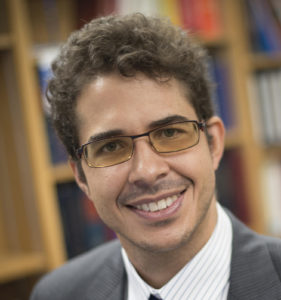Religion and the Rule of Law: Elements of Desperation and Inspiration

Paul Gowder is Professor and O.K. Patton Fellow in Law, the Iowa University College of Law
This post is part of an ongoing Series about Religion and the Rule of Law.
The rule of law is a normative principle governing the conduct of state (or state-like) coercive power. It requires that such power be exercised pursuant to the law, and, more fundamentally, pursuant to public-regarding reasons and for public-regarding goals which recognize the equal standing of those who hold power and those who have power exercised over them. A rule of law state deploys the active participation of the beneficiaries of law in their own collective self-defense against the powerful, and operates through individual access to the legal system on equal terms to vindicate individual rights. In that form, the rule of law is recognizable as a demand that citizens have made against their political authorities at least since Classical Athens.
For just as long, citizens have sought to back up these demands with divine sanction. Hesiod, in Works and Days, traditionally dated to the 7th or 8th century B.C., threatens his reprobate brother—and the bribe-taking lords to whom his brother appeals in an inheritance dispute—with the wrath of Zeus. From the classic Hugh G. Evelyn-White translation: (more…)
